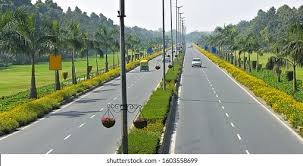A Mega Push for a Cleaner, Greener Capital Under Triple-Engine Governance
In a bold move to make the national capital cleaner and greener, the Delhi government has launched a 20-day cleanliness drive starting May 2, 2025. Spearheaded by Chief Minister Rekha Gupta, the campaign aims to revamp public hygiene, enforce waste segregation, and eliminate single-use plastic across the city.
“This is not just a government programme; it’s a movement. Everyone has to come together to make Delhi truly clean,” said CM Gupta during the official flag-off event.
What the Campaign Covers
The campaign spans markets, schools, temples, mosques, and other high-footfall areas. A key feature is the ban on single-use plastic, especially in educational institutions and religious spaces. The government has directed strict action against violators, including the registration of cases and imposition of fines.
In line with the plan:
- Roads and public places will be cleaned twice a day
- Garbage trucks will operate with covered containers
- Waste will be segregated at source to streamline disposal
- Dust-prone zones will be greened through targeted plantations
- Every district will develop “model areas” showcasing ideal sanitation practices
Monitoring & Accountability
To ensure timely execution, Delhi’s district magistrates and municipal commissioners have been instructed to conduct daily field visits. Their findings will be submitted through a centralised digital dashboard, accessible to senior officials including the Chief Minister’s Office.
“Our aim is zero tolerance for filth. Every officer involved in this campaign is being held accountable for on-ground results,” said an official from the Department of Urban Development.
Students and Citizens as Change Agents
The Delhi government has also roped in students and RWAs (Resident Welfare Associations) to play a more proactive role. Posters, skits, rallies, and awareness campaigns will be held in schools and neighbourhoods to promote behavioural change.
Markets will host “No-Plastic Days,” and vendors will be encouraged to shift to sustainable alternatives like jute and cloth bags. In addition, religious leaders are being requested to urge their communities to avoid plastic items during gatherings.
A Triple-Engine Governance Model
This initiative marks one of the first large-scale public campaigns since CM Rekha Gupta took office. It operates under a triple-engine model — the Delhi government, the Municipal Corporation of Delhi (MCD), and the Central Government — working in unison.
The government has emphasised that this is not a one-time event but part of a broader, long-term strategy to align with the national Swachh Bharat Mission.
“We want this to be a behavioural shift, not a photo op. Delhi deserves clean air, clean water, and clean streets every day — not just during campaigns,” CM Gupta added.
Expert Reactions and Public Sentiment
Environmental experts have welcomed the initiative, calling it timely and necessary.
“With Delhi battling pollution and waste overload, this campaign is an excellent step. But consistent follow-through is crucial,” said Sunita Narain, Director General of Centre for Science and Environment (CSE).
Social media is already buzzing with hashtags like #CleanDelhiDrive and #SayNoToPlastic, with citizens posting before-and-after images of their localities.
Closing Thoughts
Delhi’s 20-day cleanliness drive is a strong example of what coordinated, multi-agency action can look like in urban India. By involving the public, educational institutions, and local markets — and by setting clear targets and timelines — the government is setting a new standard for civic campaigns.
If executed effectively, this drive could not only change how Delhi looks, but also how its residents think about cleanliness and sustainability.

